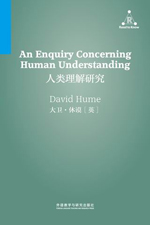人类理解研究
阿豆
Chapter 5: A skeptical solution to these doubts Section 1
Nor can we assert that the former is the cause and the latter the
effect, simply because we see one thing preceding another under one kind
of example; such an assertion is really unjustified. Their convergence
is either arbitrary and accidental. We may have little reason to infer
the existence of the other from the appearance of the one. In a word,
then a man without more experience cannot apply his conjectures or
inferences to actual facts, and he cannot be sure of anything other than
what is directly presented to his memory and senses. This
principle is called "habit" or "inertia"
(CustomorHabit). For if any action, after repeated repetitions, produces
a bias that makes it easy for us to repeat the same action again without
any inference or process of understanding, we always say that that bias
is habit. But although we apply the word habit, we do not presume to
have given the final reason for such a bias. We only indicate a
principle of human nature that is generally known, we only indicate a
principle of human nature that is known by its results.
Therefore, habit is the greatest guide for life. This principle alone
can make our experience beneficial and cause us to expect a chain of
events in the future similar to the past. Without the influence of
experience, we would not know anything other than what is presented to
our memory and senses in the present. We would never know how to use our
means to achieve our ends, and we would never use our natural abilities
to produce any results. If this were the case, all action would
immediately cease, and so would most of the thinking.



 京公网安备 11010802032529号
京公网安备 11010802032529号